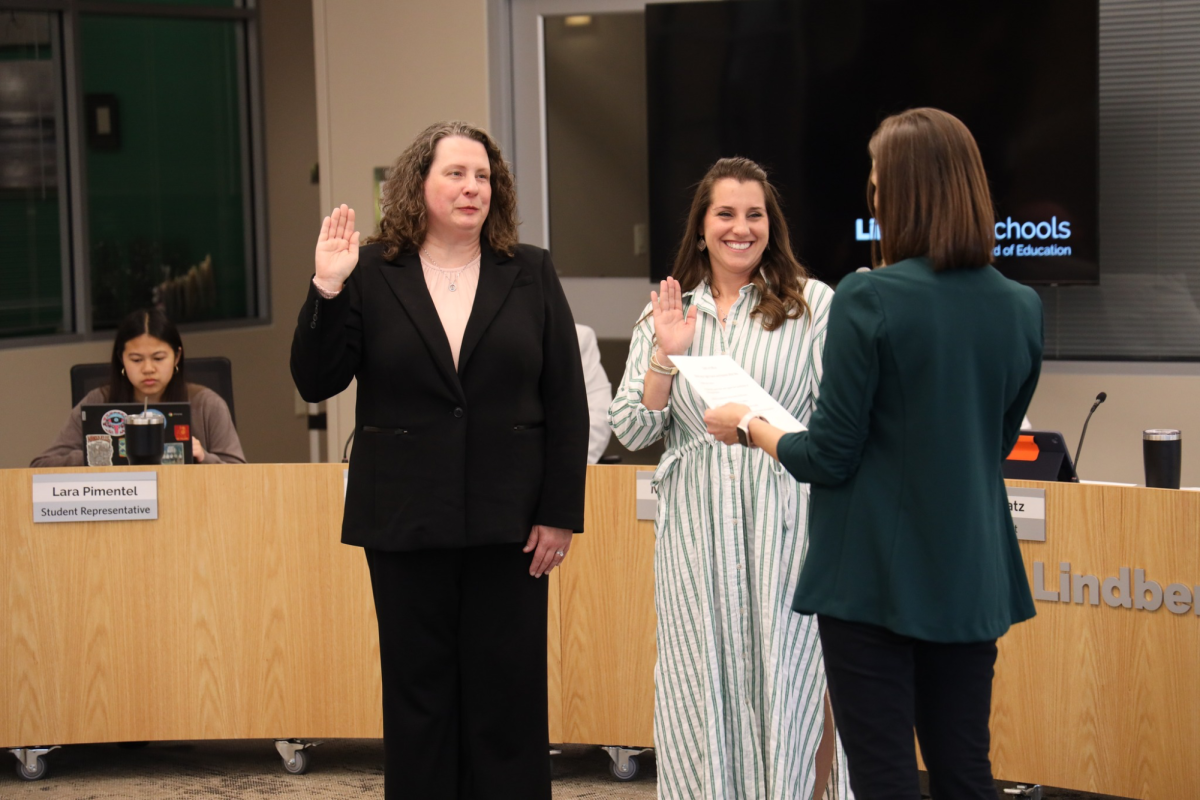Five Mehlville School District buildings should have solar panels installed by the start of the 2012-2013 school year with no out-of-pocket cost to the district and roughly $150,000 in savings over 20 years.
The Board of Education approved with a 6-0 vote — board member Mark Stoner was absent — a 20-year lease agreement with StraightUp Solar, based in St. Louis, for installation of 25-kilowatt solar panels on five district building roofs. The total estimated savings will be roughly $26,000 per 25-kilowatt system. One 25-kilowatt system will be installed on each of the five roofs.
Hagemann Elementary, Bernard Middle and Oakville Senior High are confirmed for the solar panel project, and two of the following schools, Witzel Alt Center — previously the Witzel Learning Center — Bierbaum Elementary or Beasley Elementary, will be included.
The first three schools were chosen for the newness of their roofs, visibility to the sky and to ensure every grade level could be included in a potential curricular piece of the solar-energy project.
Knost told the Call StraightUp Solar will help decide which of the additional three buildings will be the best sites. District officials would like to choose Witzel Alt Academy and Bierbaum Elementary.
Beasley is the alternate if Bierbaum will not work, according to Knost.
Because the district is pursuing a lease agreement, StraightUp Solar is responsible for installation, maintenance and the equipment, Knost told the board.
“So, while (the solar panels) can degrade as they expect them to, they can’t fail,” Knost said.
Of the four vendors — StraightUp Solar, Brightergy, Microgrid and Syndicated Solar — StraightUp Solar was the only one to include Tigo Energy Monitoring Modules, Knost told the board. Through research, the district also found the modules add roughly $20,000 to the price, even though they are not listed as a line item.
“These (modules) literally give us the ability, on the monitor (StraightUp Solar) will provide for us to set up in our schools, where we can see what each, individual panel is doing and we can monitor that, so we’ll be able to attach some curriculum to that,” he said.
The curriculum component is one of the reasons the Witzel Alt Center is under consideration for the project, according to Knost.
“We have a STRETCH program there, (the district’s gifted program) and we thought that would be really exciting for them,” Knost said.
Knost presented two StraightUp Solar options to the board, one with panels made in the United States that would save $26,132 per 25-kilowatt system and the other, with Canadian-made panels, that would save $34,813 per 25-kilowatt system.
“What research we have, (the Canadian-made panels) are shown to be a little less in quality than the USA-made panels, but they’re still very, very solid,” Knost said.
Board member Ron Fedorchak suggested the board motion to approve the USA-made panels because of discussion during the board’s goal-setting session in January, where the board stated if given the opportunity to use American-made goods, it would do so.
Knost said he will accept the USA-made choice if that is the board’s desire because he is excited about the return on investment opportunity.
“It’s finally something that we can realize, but I just want to make sure we realize we are talking about $8,000 less of a savings per building … I’m OK with that, I just want to be clear that that’s there,” he said.
A delayed-escalator approach will be used to finance the lease agreement, which Chief Financial Officer Noel Knobloch said will result in more upfront savings.
“When you get down to the real decision, from my standpoint, is how much money it costs you the first few years versus the savings …,” Knobloch told the board. “Immediately, you save more money upfront (with the delayed-escalator approach) because the savings from the energy are going to be a fixed number.”
Board President Venki Palamand told the Call he first started researching solar energy in 2007, but it was not a “financially viable option for the district at that time.”
“But recently, with new federal and state incentives, solar once again became a topic of conversation between myself and Dr. Knost,” Palamand said. “I am pleased that we have not only found a way to save money, but Mehlville will be contributing to a cleaner environment by decreasing our carbon footprint.”






















